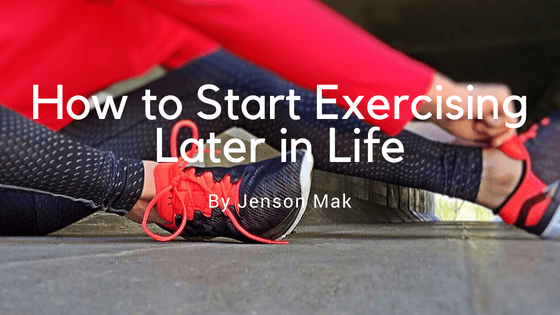According to Huffington Post, if you start exercising, even later in life, your chance of healthy ageing will triple.
The idea of starting to exercise later in life is met with many false associations, such as the idea that it is too late, won’t do any good, or is just too difficult. Contrary to that, it is instead true that people who do not exercise regularly, when picking up a routine, will instead improve balance, build muscle, increase coordination, and burn fat faster. Here are some tips on how to start exercising later in life:
Build a Routine
Building a routine and not just depending on yourself to spontaneously exercise will greatly help you hold yourself accountable and stick to your plan to start exercising. Pick days and times blocks that you are likely to feel motivated to work out, or if you have a busy schedule, perhaps cut in some time to exercise to decompress and take out some stress.
Keep Track of your Progress
Keeping track of progress will both help you hold yourself accountable, and look back and see how far you have come. There are many options for this. You could use a pedometer or stopwatch for running, walking, or jogging. You can use an app or activity tracker to keep track of specifics. Or, you can just go simple and use a notebook to track your daily activity alongside your projected routine and goals.
Choose What Best Fits You and Makes You Happy
There is no reason to force yourself to do something that makes you unhappy; half the point of exercising is for it to be fun and enjoyable, so find something you really enjoy. This may not come in the form of just working out or running, but maybe joining an adult baseball or volleyball team, doing water aerobics, joining a yoga class, or pushing yourself out of your comfort zone a bit and going rock climbing. There is something that is right for everyone and everyone’s body.
Stay Hydrated and Eat Right
An important part of exercising is being able to fuel and sustain your body. Eating right before and after a workout is imperative to fueling your body throughout and making sure your body gets the most of exercise. Staying hydrated, as well, is necessary to be able to push yourself and get the most out of exercising. Not only that but staying hydrated also has numerous other health benefits for your body that are instrumental to short and long-term health.

